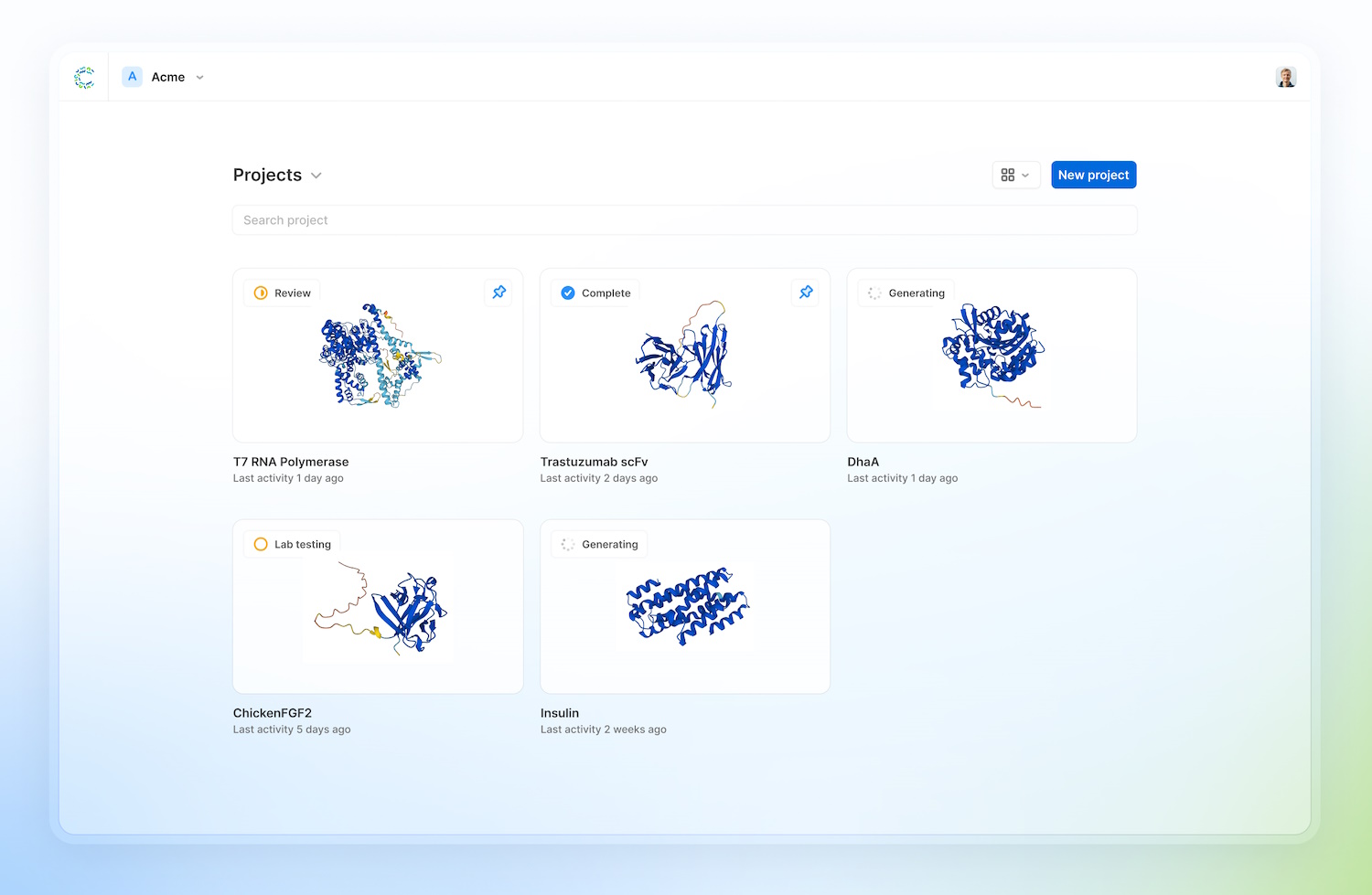Biotech and AI startup Cradle is finding success with its generative approach to protein design, landing big customers and a hefty $24 million of new investment.
The company exited stealth a little over a year ago, just as the hype around large language models was really heating up. Many AI companies in biotech train models to natively understand molecular structure; Cradle’s insight was that the long sequences of amino acids that make up the proteins in our bodies are akin to “like an alien programming language.”
It may not be possible for a person to learn that language, but an AI model could — and a person could work with that instead. While they still couldn’t just say “make a protein that does this,” they could ask which of 100 interesting proteins looks most likely to survive at room temperature or an acidic environment.
The approach seems to have caught the eye of major drug development companies like Johnson & Johnson and Novozymes. Creating a useful and functional protein from scratch is generally a pretty involved process, taking perhaps years and hundreds or thousands of wet-lab experiments.
Cradle says its tech can significantly cut down that time and the number of experiments required. Though it did not really substantiate claims of halving development time, it did provide an illustrative example from its in-house development.
They used their software to produce alternate versions of T7 RNA polymerase, an RNA production enzyme, that would be more resistant to high temperatures. Normally, they said, a team might expect under 5% of purposefully tweaked molecules to have the desired aspect, but 70% of the variants produced by Cradle showed increased stability. That’s the equivalent of running four or five such experimental runs in one.
Protein programmers get a helping hand from Cradle’s generative AI
In addition to T7, Cradle is working internally on “a dehalogenase that can be used to decontaminate soil, a growth factor that promotes growth through cell division commonly used in cultured meat products, a transaminase that regulates metabolic pathways and helps understand certain diseases as well as an antibody therapeutic,” said Cradle CEO and co-founder Stef van Grieken in an email to TechCrunch. “We have benchmarked our models against an in-house protein engineer using existing tools and see significant improvement in Generative AI based designs.”
(It’s these, in case you’re wondering:)

Such large improvements are possible, and small, even fractional improvements would be welcomed by the companies investing millions in these processes. But of course there is more to the drug development process than generating likely candidate molecules.
“We have already been able to showcase the potential of our platform to accelerate the R&D phase and help our partners to bring bio-based products to market faster and more cost-effectively,” said van Grieken. “In fact, as we ourselves and several partners have now completed several rounds of experimentation on our platform, we’re seeing models generalizing very well across different types of proteins and tasks, which is incredibly exciting.”
The tech is by no means limited to drug development and could be used in food and industrial applications as well. As with other tools of this type, part of the draw for customers is that Cradle doesn’t require a machine learning engineer to operate, but can be put directly in the hands of scientists and labs.
I asked van Grieken his thoughts on building an EU-based biotech company (many on the team previously worked at big tech firms in Silicon Valley).
“We have found that building in the EU has pros and cons. Fundraising for a deep-tech venture in Europe is more complicated in Europe than in the US, where there are many more modern ‘tech-bio’ investors that are interested in companies like Cradle. There is also a much larger community of like-minded founders in the Bay Area,” he said.
“However, from a talent perspective I think Europe is underappreciated,” van Grieken continued. “For example, here in Zurich, you have all major big tech companies (Apple, Google, Facebook) represented with thousands of engineers. You have a fantastic talent pool coming out of ETH and EPFL, which are some of the best universities for computer science and molecular biology in the world. And competition for talent is definitely less intense than in the Bay Area. Finally, many of the largest pharma and biotech companies in the world are located in Europe, so we are close to our customers. I definitely think the European ecosystem is developing rapidly.”
Cradle’s $24 million A round follows a $5.5 million seed last year. Previous investor Index Ventures led the round, with Kindred Capital (also a seed investor) participating, along with individual investors Chris Gibson, Tom Glocer and others. The company says it will use the capital to grow its team and sales, as you do.































Comment